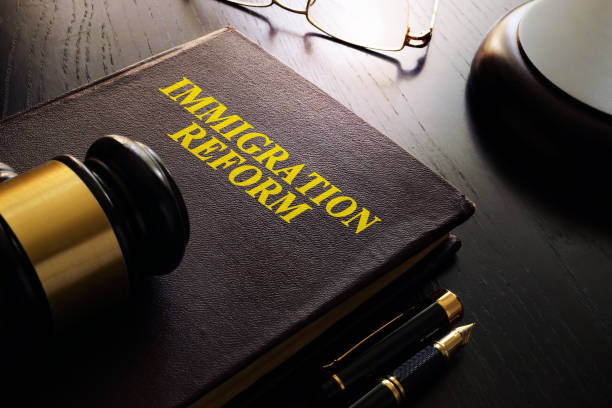
Immigration Reform 2024: Building a Fair, Inclusive, and Forward-Thinking System
In the midst of a rapidly changing world, immigration reform stands as a critical issue that demands attention and action. With the inauguration of a new administration in 2024, there is renewed hope for comprehensive immigration reform in the United States. The challenges facing the immigration system are complex and multifaceted, requiring bold and visionary solutions that prioritize fairness, inclusivity, and the recognition of immigrants as valuable contributors to society. In this blog post, we’ll explore the need for immigration reform in 2024 and outline key principles and priorities for building a more equitable and forward-thinking immigration system.
### The Need for Immigration Reform
The current US immigration system is outdated, fragmented, and in dire need of reform. Decades of legislative gridlock and piecemeal policy changes have resulted in a system that is plagued by inefficiencies, backlogs, and widespread inequities. Millions of undocumented immigrants live in the shadows, facing constant fear of deportation and separation from their families. Meanwhile, legal pathways to immigration are often marred by bureaucratic hurdles, lengthy processing times, and arbitrary quotas that fail to meet the demands of a dynamic and globalized economy.
### Principles of Reform
As we embark on the journey toward immigration reform in 2024, it’s essential to ground our efforts in core principles that reflect our values as a nation and address the complex realities of immigration in the 21st century. These principles include:
1. **Fairness and Equity:** Reform should prioritize fairness and equity for all immigrants, regardless of their immigration status or background. This includes providing a pathway to citizenship for undocumented immigrants who have long contributed to our communities and economy.
2. **Family Reunification:** Family is the cornerstone of our society, and reform should prioritize keeping families together by reducing backlogs and wait times for family-based immigration petitions and promoting humane policies for family reunification.
3. **Economic Opportunity:** Immigration reform should be driven by the economic needs of the country, ensuring that our immigration system is responsive to labor market demands, promotes entrepreneurship and innovation, and harnesses the talents and skills of immigrants to drive economic growth.
4. **Humanitarian Values:** Our immigration system should reflect our commitment to humanitarian values and provide protection and assistance to refugees, asylum seekers, and other vulnerable populations fleeing persecution, violence, and instability.
5. **Integration and Inclusion:** Reform should promote the full integration and inclusion of immigrants into American society, providing access to education, healthcare, and social services, and combating discrimination and xenophobia.
### Priorities for Reform
Building on these principles, there are several key priorities that should guide immigration reform efforts in 2024:
1. **Comprehensive Legislation:** Congress should enact comprehensive immigration reform legislation that addresses the full spectrum of immigration issues, including border security, pathways to citizenship, legal immigration reforms, and enforcement measures.
2. **Pathway to Citizenship:** Reform should provide a clear and achievable pathway to citizenship for undocumented immigrants who meet certain criteria, including payment of taxes, background checks, and contributions to their communities.
3. **Dreamers and TPS Holders:** Protections should be extended to Dreamers (individuals brought to the US as children) and Temporary Protected Status (TPS) holders, providing them with a pathway to permanent residency and citizenship.
4. **Modernization of Legal Immigration:** The legal immigration system should be modernized to reduce backlogs, streamline processing times, and eliminate arbitrary caps and quotas that hinder the ability of immigrants to reunite with their families or contribute to the economy.
5. **Border Security and Enforcement:** Reform should prioritize smart and effective border security measures that enhance national security while respecting human rights and civil liberties. Enforcement efforts should focus on targeting criminal activity and threats to public safety rather than indiscriminate deportation of nonviolent individuals.
### Conclusion
As we stand at the dawn of a new era in American politics, the time is ripe for bold and visionary immigration reform that reflects our values, addresses the challenges of the 21st century, and reaffirms our identity as a nation of immigrants. By embracing principles of fairness, equity, and inclusivity, and prioritizing key reforms that promote family unity, economic opportunity, and humanitarian values, we can build a more just and prosperous future for all. In 2024, let us come together as a nation to enact meaningful immigration reform that honors our heritage, strengthens our communities, and reaffirms our commitment to the values that define us as Americans.





